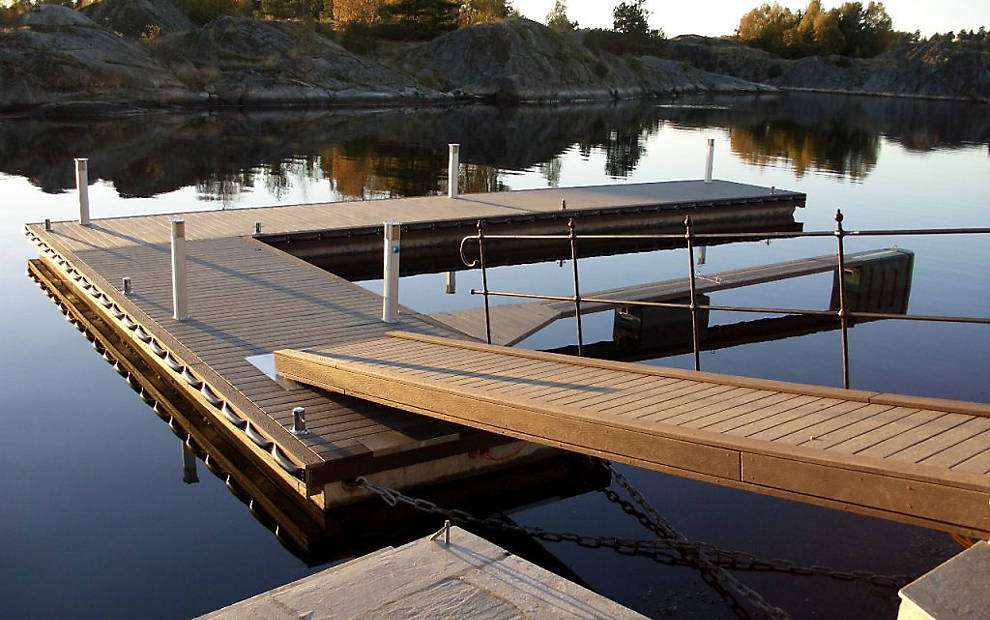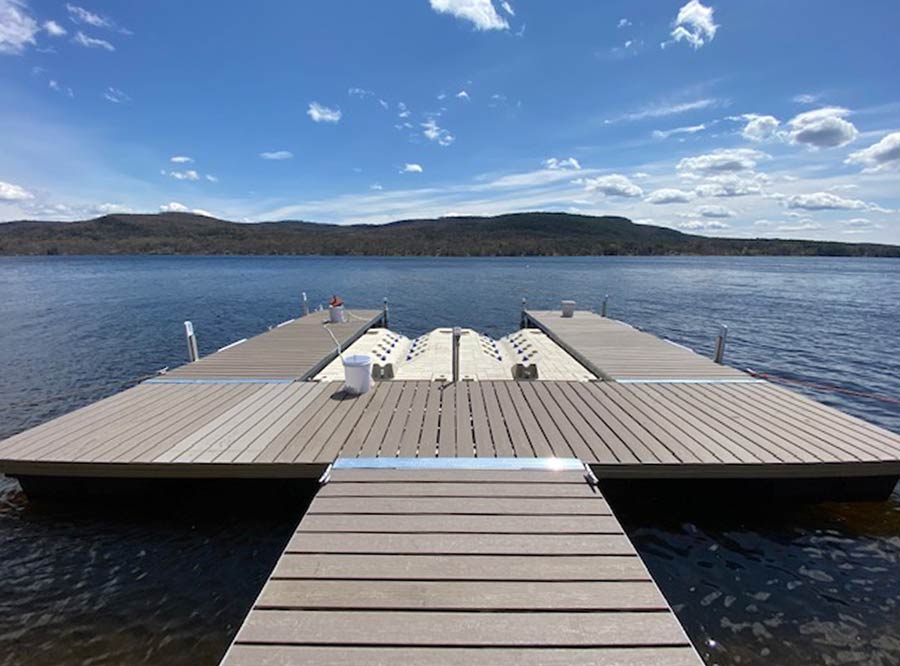Check out the Benefits of Selecting a Floating Docks Remedy for Your Waterfront Residential property
Check out the Benefits of Selecting a Floating Docks Remedy for Your Waterfront Residential property
Blog Article
The Ultimate Guide to Picking the most effective Floating Docks
Selecting the suitable floating dock requires an extensive understanding of different elements that influence both performance and long life. Variables such as dock types, materials, and vital attributes substantially influence your decision-making process.
Understanding Floating Dock Types
When choosing a drifting dock, it is necessary to comprehend the numerous kinds readily available, as each serves unique functions and applications. Floating docks mainly fall under three classifications: modular, stationary, and pontoon docks.
Modular docks are composed of specific areas that can be conveniently set up or reconfigured, making them suitable for transforming water levels and diverse usages, such as entertainment tasks or business procedures. Their adaptability permits for customization based upon details demands.

Pontoon docks are defined by their resilient structure, often composed of numerous pontoons that offer security and support. They are particularly appropriate for bigger vessels and are typically made use of in marinas or for waterside residential or commercial properties. Recognizing these types help in choosing one of the most appropriate floating dock to fulfill specific requirements, ensuring ideal functionality and security.
Trick Materials for Durability
Selecting the ideal products for floating docks significantly effects their toughness and longevity. The most typical products consist of timber, plastic, steel, and composite materials, each offering distinctive benefits and restrictions.
Timber, often preferred for its aesthetic charm, requires routine maintenance to endure wetness and decay. Pressure-treated lumber can enhance resistance to rot, yet it might still be at risk to insects and weathering.

Plastic docks, constructed from high-density polyethylene (HDPE), are resistant to corrosion, UV radiation, and impact, making them a popular selection for seaside environments. Their light-weight nature likewise facilitates easy installment and relocation.
Steel docks, generally constructed from light weight aluminum or galvanized steel, offer outstanding stamina and durability. They are resistant to deterioration, particularly when treated, however may call for extra insulation to stop heat buildup in hot environments.
Composite materials, integrating timber fibers and plastics, provide the benefits of both wood and plastic, withstanding moisture and fading while needing marginal maintenance. - floating dock company
Inevitably, the option of products must straighten with environmental problems, planned use, and upkeep choices to guarantee the floating dock remains useful and aesthetically pleasing gradually.
Essential Attributes to Take Into Consideration
While the choice of materials is critical, considering necessary features for floating docks is similarly essential to make sure optimum efficiency and individual contentment. One key function to examine is the dock's buoyancy ability, which determines just how much weight it can sustain without submerging. dock company. This is vital for accommodating boats, personal watercraft, and also leisure tasks
Furthermore, transportability is a substantial consideration. Depending on your needs, you may want a dock that is easy to transport and disassemble, especially if you prepare to relocate it seasonally. Stability is another important feature; a well-designed floating dock should reduce movement brought on by wind and water currents, providing a secure system for customers.
Safety and security attributes, such as non-slip surfaces you can try these out and rounded sides, are additionally important to avoid crashes, especially in wet problems. Take into consideration the schedule of devices, such as ladders, bumpers, and cleats, which can boost the performance of your dock.
Installation and Upkeep Tips
Establishing up and preserving a drifting dock needs cautious planning and focus to detail to guarantee its long life and optimal efficiency. Begin by selecting an ideal place that reduces direct exposure to strong currents and waves, which can cause deterioration. Guarantee that the water deepness suffices for the dock's height which it is anchored firmly to avoid activity.
During installment, comply with the supplier's guidelines very closely, as improper setting up can jeopardize security. Use high-quality products immune to corrosion, such as light weight aluminum or dealt with wood, to boost toughness. On a regular basis inspect all elements, consisting of floats, ports, and securing systems, for signs of damages or wear.
Maintenance is critical for extending the life of your dock. Tidy the surface areas periodically to avoid algae build-up and look for any kind of loose fittings that might call for firm. If your dock uses flotation tools, guarantee they remain undamaged and cost-free from punctures. Additionally, consider applying protective layers to wooden parts to lower weathering effects. By adhering to these installation and maintenance tips, you can delight in a practical and trustworthy floating dock for several years ahead.
Budgeting for Your Dock
Budgeting for your dock is an important action that can substantially affect your overall fulfillment and financial investment in a waterside residential or commercial property. Establishing a clear spending plan assists you navigate the numerous choices offered and ensures you make educated choices that line up with your financial abilities.
Begin by establishing the dimension and design of the dock you require, as these elements will significantly affect the expense. Floating docks can vary dramatically in cost, depending on products, buoyancy, and functions like devices and ramps. Research study various producers and suppliers to contrast prices and recognize the market worth.
Along with initial expenses, consider continuous expenses such as maintenance, insurance, and prospective repairs. Allot funds for these repeating prices to prevent shocks down the line. It's also sensible to budget for any type of necessary licenses or inspections, which may be called for by local laws.
Lastly, bear in mind the possible roi. A browse around this site tactical dock can boost your building's value and allure, providing a positive monetary influence in the long term. By budgeting efficiently, you can make sure that your dock fulfills your needs without endangering your financial stability.
Verdict
To conclude, selecting the perfect floating dock demands a complete analysis of different aspects, consisting of dock types, materials, important features, and installation processes. Prioritizing resilience and compliance with local regulations inevitably boosts performance and residential property worth. Mindful factor to consider of monetary constraints will certainly better make certain an audio investment. By sticking to these standards, people can make educated decisions that web link advertise long-lasting complete satisfaction and usability in marine settings.

While the option of products is crucial, thinking about necessary attributes for floating docks is just as crucial to make certain optimum performance and user fulfillment.Establishing up and keeping a drifting dock requires careful planning and interest to information to guarantee its long life and optimum efficiency. Floating docks can differ dramatically in price, depending on materials, buoyancy, and attributes like ramps and devices.In conclusion, selecting the optimal floating dock requires a thorough assessment of various variables, including dock kinds, materials, necessary features, and installment procedures.
Report this page